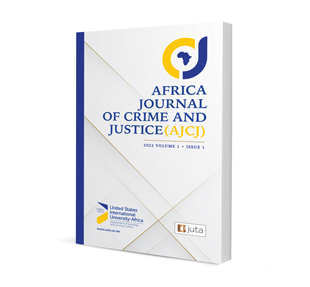
The Gendered Impact of COVID-19 Directives on Access to Criminal Justice in South Africa
Author: Emma Charlene Lubaale
ISSN: 2958-8162
Affiliations: Faculty of Law, Rhodes University
Source: Africa Journal of Crime and Justice 2022, p. 1 – 27
https://doi.org/10.47348/AJCJ/2022/a1
Abstract
Gender-based violence (GBV) knows no boundaries, and no region has been immune to this scourge. In the South African context, GBV had reached pandemic levels long before the COVID-19 virus. With the outbreak of the COVID-19 pandemic and the resultant lockdown measures adopted in response to it, cases of GBV rose steeply. The pandemic also saw major criminal justice players in South Africa, including the South African Police Service, the National Prosecuting Authority, the judiciary, and Correctional Services, adopt directives to regulate criminal justice during the lockdown periods. The directives took the form of general directives, arguably having no implications for women’s right to access to criminal justice. In this article, I examine selected directives by criminal justice players with a focus on those issued by the judiciary. I assess whether these directives could have been gendered, thus negatively impacting women’s access to criminal justice during the COVID-19 pandemic. I conduct this analysis using the concept of intersectionality, which underscores that the social categorisation of an individual, such as gender, race, nationality, and class can sometimes overlap or compound, thus causing disadvantage or discrimination. Based on this analysis, I conclude that some of these directives were gendered and could have exacerbated the challenge of access to justice by survivors of GBV. This conclusion seeks to confirm the view that seemingly gender-neutral directives and regulations may in fact contain gendered elements.